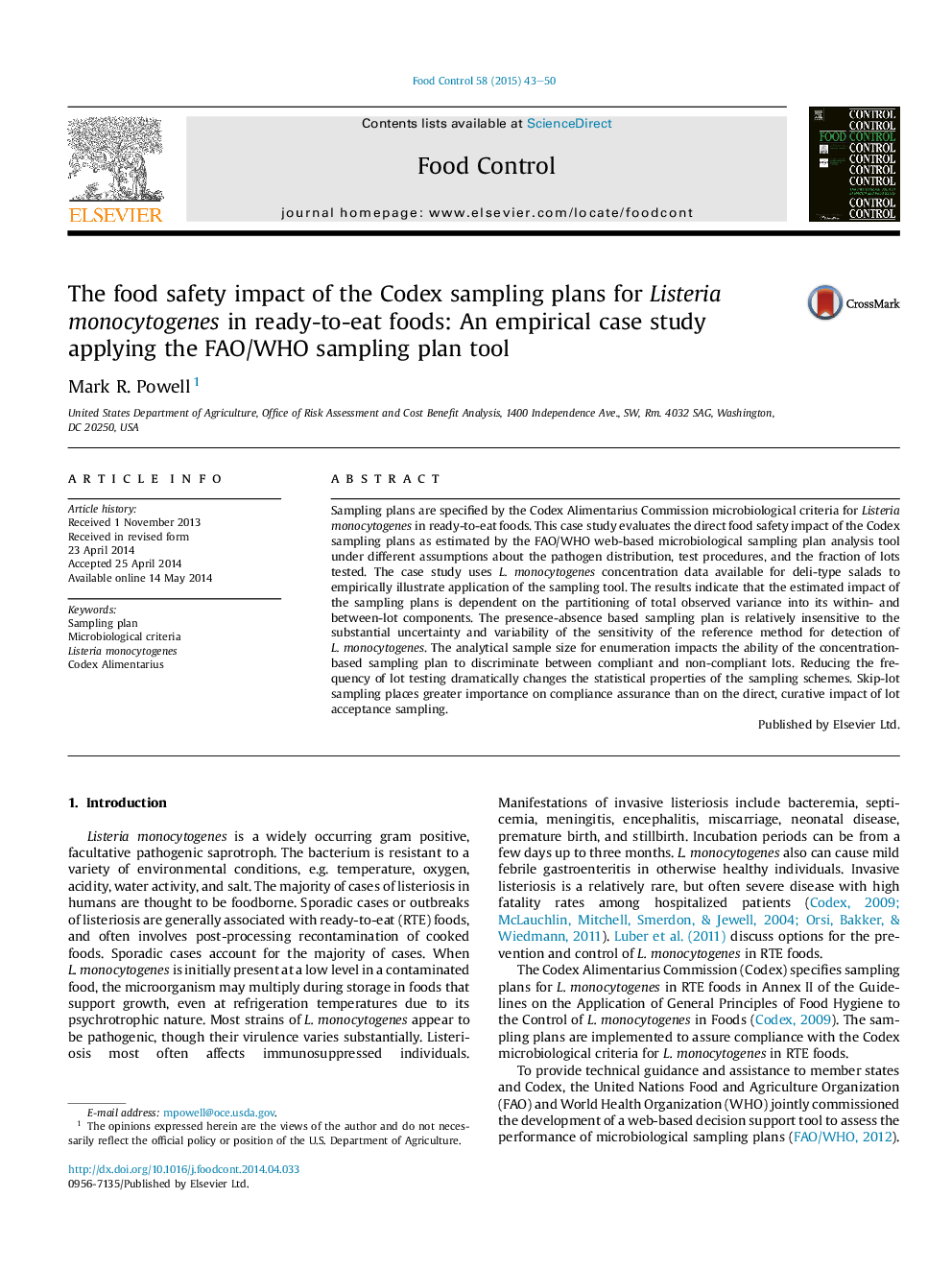| کد مقاله | کد نشریه | سال انتشار | مقاله انگلیسی | نسخه تمام متن |
|---|---|---|---|---|
| 4559272 | 1628404 | 2015 | 8 صفحه PDF | دانلود رایگان |

• The Codex sampling plans for Listeria monocytogenes are evaluated.
• The evaluation applies the FAO/WHO web-based sampling tool.
• L. monocytogenes in RTE deli-type salads provides a case study.
• The results depend on partitioning total variance within and between lots.
• Reducing sampling frequency dramatically changes sampling plan performance.
Sampling plans are specified by the Codex Alimentarius Commission microbiological criteria for Listeria monocytogenes in ready-to-eat foods. This case study evaluates the direct food safety impact of the Codex sampling plans as estimated by the FAO/WHO web-based microbiological sampling plan analysis tool under different assumptions about the pathogen distribution, test procedures, and the fraction of lots tested. The case study uses L. monocytogenes concentration data available for deli-type salads to empirically illustrate application of the sampling tool. The results indicate that the estimated impact of the sampling plans is dependent on the partitioning of total observed variance into its within- and between-lot components. The presence-absence based sampling plan is relatively insensitive to the substantial uncertainty and variability of the sensitivity of the reference method for detection of L. monocytogenes. The analytical sample size for enumeration impacts the ability of the concentration-based sampling plan to discriminate between compliant and non-compliant lots. Reducing the frequency of lot testing dramatically changes the statistical properties of the sampling schemes. Skip-lot sampling places greater importance on compliance assurance than on the direct, curative impact of lot acceptance sampling.
Journal: Food Control - Volume 58, December 2015, Pages 43–50